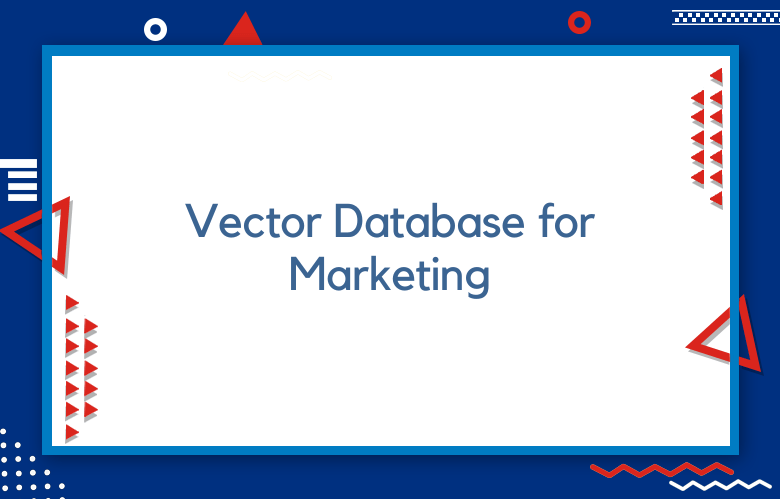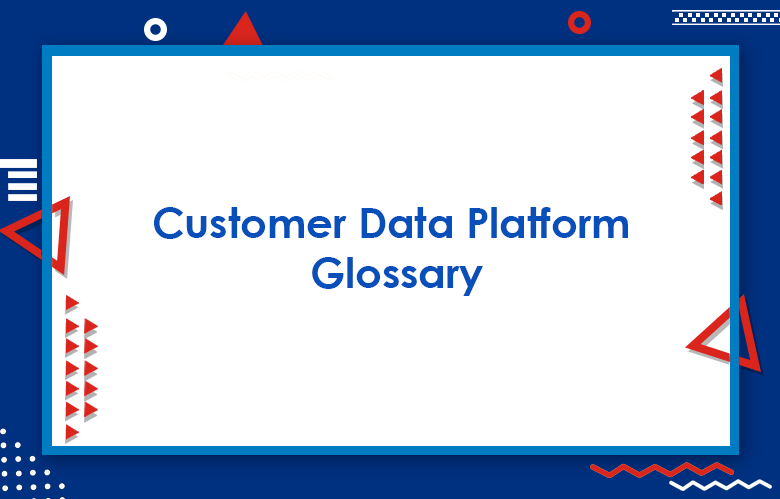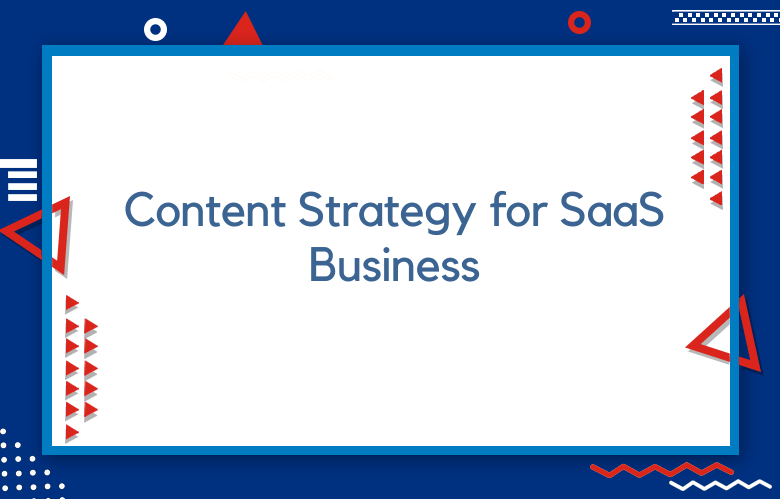Vector Database for Marketing: Optimizing AI Marketing with Vector Databases

In marketing, companies always look for the best way to optimize their advertising efforts. One of the latest innovations that has been gaining popularity among marketers is using vector databases. A vector database is a tool that uses artificial intelligence (AI) to analyze customer data and create vectors, or mathematical representations, of each customer’s preferences.
With these vectors, companies can create personalized marketing campaigns that are more likely to resonate with each customer. I will explain how vector databases work and why they’re essential for modern marketers.
In the age of advanced technology and digital marketing, businesses are always looking for ways to optimize their marketing strategies and effectively reach their target audience.
Artificial intelligence (AI) has revolutionized the marketing industry and made it easier to analyze customer data, personalize marketing campaigns, and measure results.
To maximize AI’s benefits, marketers must have access to accurate and comprehensive customer data. Vector databases can help with that.
We will discuss how vector databases can optimize AI marketing strategies and improve customer targeting.
What is a Vector Database?
A Vector Database is a type of database that stores information regarding vector graphics, which differ from traditional image formats such as JPEG or PNG.
Vector graphics comprise paths, lines, and curves rather than pixels, allowing them to be scaled up or down without losing quality or clarity. A Vector Database contains many vector images, ranging from simple geometric shapes to complex illustrations, logos, and symbols.
Vector databases can be used by graphic designers, illustrators, and other professionals who require high-quality, scalable graphics.
Due to their versatility and flexibility, vector graphics have become increasingly popular within the creative industry. Many businesses and organizations use them for branding and marketing purposes.
How Vector Databases can Supercharge your Marketing AI Efforts
Vector databases are becoming increasingly popular in marketing and artificial intelligence (AI). These databases store vector representations of data, such as keywords, images, and customer information, which can be used to enhance AI-driven marketing strategies.
By utilizing vector databases, companies can have access to large amounts of data that can be used to personalize and optimize marketing campaigns.
One key benefit of vector databases is their ability to handle large amounts of data efficiently. Rather than sifting through endless amounts of unstructured data, vector databases use mathematical models to convert data into numerical vectors.
These vectors can then search for similar data points and predict customer behavior. This enables marketers to leverage AI algorithms to improve their understanding of customer preferences and behaviors and create more effective targeted marketing campaigns.
The synergy Between vector Databases and data-driven Marketing Strategies
The synergy between vector databases and data-driven marketing strategies has become increasingly relevant in today’s digital age. Vector databases store data as vectors, enabling them to store and analyze large quantities of data quickly.
By utilizing these databases, businesses can collect data on their target audience to create personalized marketing messages that resonate better with their audience.
Data-driven marketing strategies allow businesses to develop highly targeted campaigns tailored to specific demographics, behaviors, or preferences. By analyzing consumer behavior and preferences data, companies can create more targeted and effective marketing campaigns that are more likely to drive sales and achieve business objectives.
Harness the Capabilities of vector Databases for hyper-personalized Marketing Campaigns.
In today’s fast-paced world, businesses face increasing pressure to deliver personalized and targeted marketing campaigns to their customers. One solution that has gained immense popularity in recent years is vector databases.
Harnessing the capabilities of these databases can help businesses achieve hyper-personalized marketing campaigns that resonate with their target audience.
Vector databases excel in storing and managing vast amounts of data, including customer profiles, demographic information, purchase history, and behavioral data.
These databases are incredibly efficient in handling complex queries and performing real-time analysis, which means businesses can quickly access and interpret important insights that translate into highly targeted campaigns.
How to Streamline Marketing tasks with AI and vector Databases for Efficiency Gains
Artificial Intelligence (AI) and vector databases have revolutionized the marketing world in more ways than one. By leveraging the capabilities of AI, businesses can streamline marketing tasks, enhance their efficiency, and ultimately achieve greater returns on their investment.
AI can improve marketing efficiency by automating tasks that require much time and effort.
For example, AI-powered chatbots can handle customer queries and support requests 24/7, without human intervention. This reduces customer wait times and frees marketing teams to focus on core tasks requiring their expertise.
The Metrics and KPIs to Gauge the Effectiveness of AI Marketing with Vector Databases
As AI marketing continues to mature, businesses are beginning to look toward metrics and key performance indicators (KPIs) to gain insights into the effectiveness of their marketing campaigns.
In recent years, vector databases have become a critical tool for AI-driven marketing. These databases are collections of vector mathematical representations of data in an n-dimensional space that can be used to identify patterns and trends in consumer behavior.
Businesses should establish clear KPIs that align with their overall marketing goals to gauge the effectiveness of AI marketing with vector databases.
These KPIs may include metrics like conversion rates, customer engagement, or revenue growth. Once these KPIs are established, businesses can leverage the information provided by vector databases to measure their performance against them.
Optimizing AI Marketing with Vector Databases
Artificial Intelligence (AI) marketing has revolutionized how businesses market and sell their products. By utilizing AI, companies can collect, analyze, and interpret vast amounts of data to personalize marketing campaigns for their target audience.
However, leveraging the true potential of AI in marketing requires access to high-quality data sets. This is where vector databases come into play.
A vector database is a data structure that stores vectors or mathematical representations of data points. In AI marketing, vector databases can store customer data points such as browsing history, purchasing patterns, and demographic information.
By keeping this data in a vector database, businesses can manipulate and analyze it using advanced algorithms to segment their target audience and optimize marketing campaigns.
Case Studies: Vector Databases in Marketing
Vector databases are becoming increasingly popular in marketing. These databases are different from traditional databases in that they store data as vectors rather than just raw values.
This means that the data stored in the database is more descriptive and can help marketers better understand their customers.
Vector databases use vectorization to transform raw data into structured data that machine learning algorithms can analyze.
This technique converts each data point into a vector with multiple dimensions. Each dimension corresponds to a different attribute of the data point. For example, if the data point represents a customer, the measurements might include age, gender, income, and geographic location.
Scalability of Vector Databases for Marketers
The scalability of vector databases is crucial for marketers who need to analyze large sets of customer data in real-time. Vector databases store data points and their corresponding vectors, allowing fast and efficient data retrieval and querying.
This, in turn, enables marketers to extract relevant insights from vast amounts of customer data, including their preferences, behaviors, and buying patterns.
One of the primary benefits of vector databases is their scalability. These databases are designed to handle large datasets, making them well-suited for use cases where data volumes are expected to grow significantly over time.
Vector databases are highly parallelizable, meaning they can process many requests simultaneously, resulting in faster query response times. Moreover, vector databases can scale horizontally, adding more nodes to handle increased data volumes and query loads.
Future Trends: AI and Vector Databases in Marketing
Automated Targeting
Artificial intelligence (AI) and vector databases are becoming increasingly popular in marketing, allowing marketers to target specific audiences more accurately than ever before. AI-driven targeting systems can analyze vast amounts of data to identify the most likely prospects for a given product or service.
This allows marketers to create highly targeted campaigns that are more likely to succeed. AI-driven targeting systems can personalize marketing messages based on individual preferences and behaviors.
Predictive Analytics
Predictive analytics is another way that AI and vector databases are being used in marketing. Predictive analytics uses algorithms to analyze data and predict future outcomes, such as which customers are most likely to purchase a product or service.
This can help marketers better understand their target audience and craft more effective campaigns. Predictive analytics can identify potential opportunities and risks in the marketplace before they arise.
Automated Content Creation
AI-driven content creation is also becoming more common in marketing. It allows marketers to quickly generate high-quality content at scale without manually writing each piece of content from scratch.
AI-driven content creation systems use natural language processing (NLP) technology to generate text tailored specifically for a given audience or purpose. This allows marketers to create personalized content on demand without hiring additional staff or outsourcing the work.
Chatbots & Virtual Assistants
Chatbots and virtual assistants are becoming increasingly popular online tools for customer engagement.
These automated programs use AI technology, such as natural language processing (NLP), machine learning (ML), and deep learning (DL) algorithms, to simulate conversations with customers and provide them with information or answers to their questions in real-time.
Chatbots can also be used for customer service, such as answering frequently asked questions (FAQs).
Voice Search Optimization
Voice search optimization is essential to any modern digital marketing strategy due to the increasing popularity of voice search technology among consumers worldwide.
Voice search optimization involves optimizing websites for keywords that are spoken rather than typed into a search engine query box, such as “What’s the best Italian restaurant near me?”
Optimizing websites for voice searches requires businesses to think about how people naturally phrase their queries using voice search technology instead of typing them into a computer or smartphone screen.
Conclusion:
Vector databases represent a powerful tool for modern marketers. Companies can improve engagement and conversion rates by using AI to create personalized marketing campaigns based on customer preferences. While challenges are indeed associated with using vector databases, the benefits are clear.
As more and more companies turn to AI-powered marketing, vector databases will likely become an increasingly important tool in the years to come.
In summary, vector databases are crucial to optimizing AI marketing strategies. By centralizing and structuring customer data in a format that machine learning algorithms can quickly analyze, marketers can create highly personalized campaigns that target their audience.
Vector databases are also helpful in A/B testing, customer segmentation, and overall campaign optimization. As technological advancements and data analysis continue, vector databases will become even more crucial in marketing.
Call: +91 9848321284
Email: [email protected]



